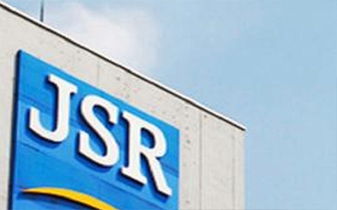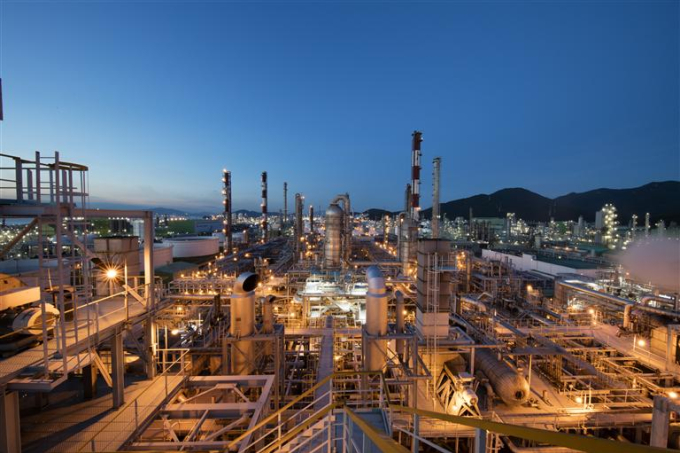Rubber business disposal
Japanãs JSR reaches out to Lotte, LG for sale of synthetic rubber business
By Jan 06, 2021 (Gmt+09:00)
2
Min read
Most Read

Japanãs JSR Corp. is reaching out to Korean chemical companies to dispose of its synthetic rubber business and focus instead on semiconductor materials, bio and life sciences.
According to investment banking sources on Jan. 6, JSR, through its adviser Nomura Securities, has contacted Lotte Chemical Corp., LG Chem Ltd. and Kumho Petrochemical Co. to sell its elastomer unit, which produces general-purpose synthetic rubbers and specialty rubbers such as cathode binders.
Among the three companies, sources said Lotte Chemical is the strongest candidate for the acquisition of the Japanese firmãs synthetic rubber business as the Korean company has actively been seeking takeover targets to grow big.
In 2017, Lotte set up an elastomer joint venture with Italian chemical company Versalis S.p.A. Two years later, Lotte made an aborted attempt to take over Japanãs Hitachi Chemical Co., which was sold to Showa Denko. In May of last year, Lotte purchased a 4.7% stake in Showa Denko.
LOTTE MAY BENEFIT FROM PURCHASE OF ELASTOMER BUSINESS
Purchase of the JSR unit would help Lotte to create synergy with its Versalis JV, which has been bleeding under heavy operating losses since its inception, according to industry officials.
Established in 1957 as Japan Synthetic Rubber Co. to supply rubber to the Japanese tire industry, the company currently runs four business divisions ã Elastomers and Plastics, Digital Solutions and Life Sciences.

Once the worldãs second-largest synthetic rubber maker, JSRãs main products include synthetic rubbers, synthetic resins used in auto tires, LCD-related materials and photoresists. The company also boasts of advanced technology in the manufacture of rubber for eco-friendly, high-performance automobile tires.
JSR runs operations in Japan, Thailand and Hungary. In South Korea, it launched Kumho Polychem in 1985, a joint venture with Korean conglomerate Kumho Petrochemical Group.
In early 2020, ValueAct Capital, a San Francisco-based investment company, bought a 7% stake in JSR.
SALE PRICE SEEN CLOSE TO 1 TRILLION WON
JSRãs elastomer business posted 1.8 trillion won ($1.66 billion) in revenue for the fiscal year 2019 that covers the April 2019 to March 2020 period, accounting for the largest portion of 37.9% among its four business divisions.
But the elastomer unit ran an operating loss of 18.5 billion won in fiscal 2019, hit by the weak auto industry amid the pandemic. In previous years, the business posted operating profit in the range of 80 billion won and 90 billion won, creating speculation that JSR would hope to raise close to 1 trillion won in proceeds from the sale of the elastomer business.
In South Korea, JSR is known for its photoresist product, which was placed under an export ban in 2019 by the Japanese government amid a trade spat with Korea, hurting local chipmakers such as Samsung Electronics Co.
Some analysts say JSR may not find a Korean buyer as Korean chemical companies have sought to acquire makers of high value-added products rather than general-purpose synthetic rubber manufacturers.
Write to Jun-ho Cha and Sang-eun Lucia Lee at chacha@hankyung.com
In-Soo Nam edited this article.
More to Read
-

-
 M&AsSamyang joins bid to acquire US-based chemical maker Emerald Kalama
M&AsSamyang joins bid to acquire US-based chemical maker Emerald KalamaNov 01, 2020 (Gmt+09:00)
2 Min read -
 Lotte Rental shelves share sale plan as IPO market cools
Lotte Rental shelves share sale plan as IPO market coolsOct 28, 2020 (Gmt+09:00)
2 Min read -
 Lotte Group to invest $258 mn in Doosan Solus to boost footing in EV market
Lotte Group to invest $258 mn in Doosan Solus to boost footing in EV marketSep 23, 2020 (Gmt+09:00)
2 Min read
Comment 0
LOG IN




